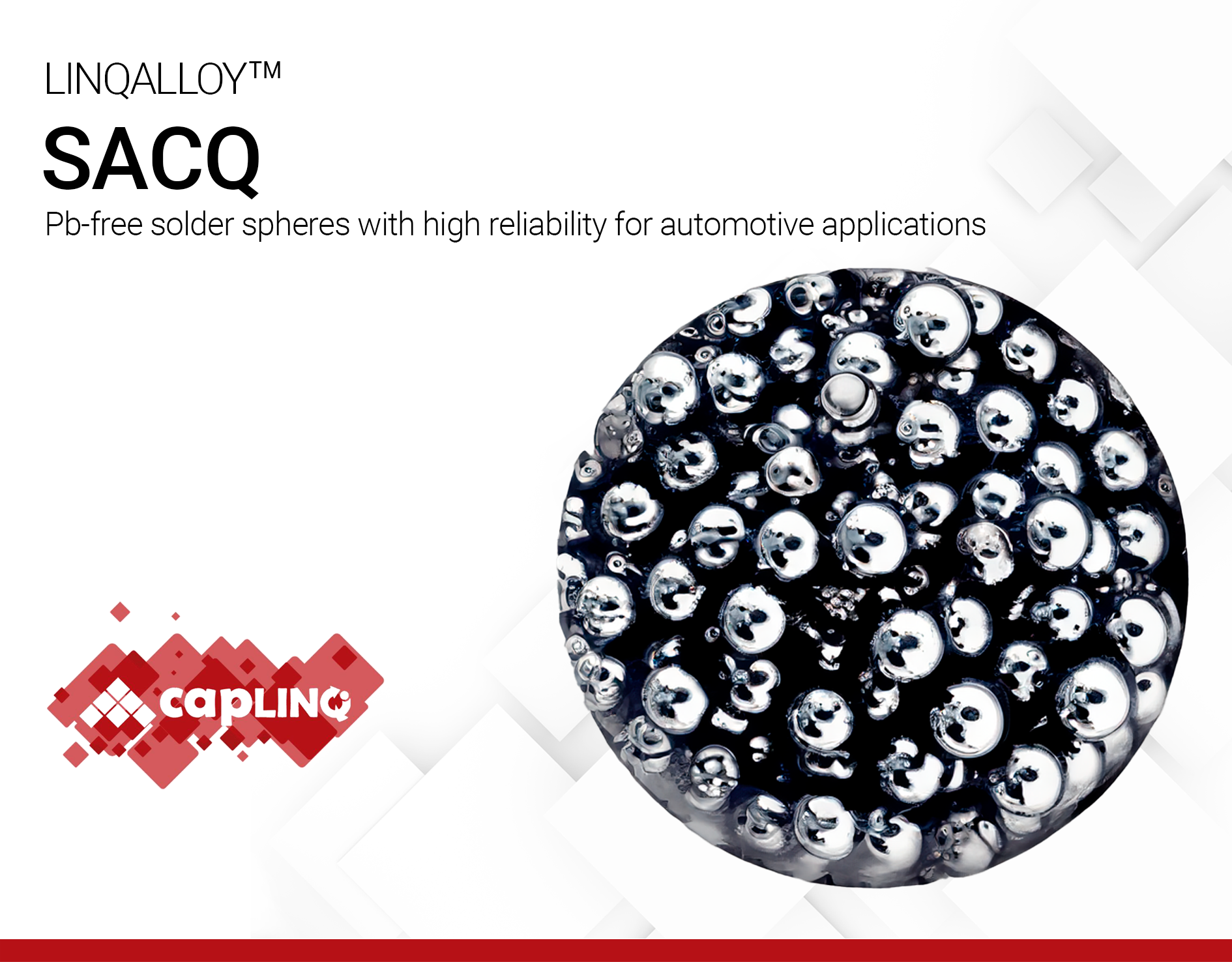SACQ | Pb-free Solder Spheres
Harmonization Code : 8001.20 | Unwrought tin: Tin alloys
Main features
- Leadfree Solder Spheres
- Excellent Solder Joint Reliability for small devices
- Excellent fatigue resistance
Product Description
LINQALLOY SACQ solder spheres are lead free Tin/Silver/Copper/Bismuth/Nickel alloys that contain 92.45% Tin (Sn), 4% Silver (Ag),0.5% Copper (Cu), 3% Bismuth (Bi), and 0.05% Nickel (Ni).
LINQALLOY SACQ solder spheres offer higher reliability than SAC405, in small, and thin devices, particularly in WLCSP and WLFO designs.
Features:
- Excellent Fatigue Resistance
- Compatible with all Flux Types
- Excellent Solder Joint Reliability
- Best Wetting Sn/Ag/Cu/Bi/Ni Alloy
Technical Specifications
| General Properties | |||||||||||
| Alloy Composition Alloy Composition Composition of the alloy material | Sn92.45Ag4Cu0.5Bi3.0Ni0.05 | ||||||||||
| Alloy Type Alloy Type A metallic element type | SACQ | ||||||||||
| Specific Gravity Specific Gravity Specific gravity (SG) is the ratio of the density of a substance to the density of a reference substance; equivalently, it is the ratio of the mass of a substance to the mass of a reference substance for the same given volume. For liquids, the reference substance is almost always water (1), while for gases, it is air (1.18) at room temperature. Specific gravity is unitless. | 7.56g/cc | ||||||||||
| |||||||||||
| Thermal Properties | |||||||||||
| |||||||||||
| Other Properties | |||||||||||
| RoHS Compliant RoHS Compliant RoHS is a product level compliance based on a European Union Directive which restricts the Use of certain Hazardous Substances in Electrical and Electronic Equipment (RoHS). Products compliant with this directive do not exceed the allowable amounts of the following restricted materials: lead, mercury, cadmium, hexavalent chromium, polybrominated biphenyls (PBB) and polybrominated diphenyl ethers (PBDE), with some limited exemptions | Yes | ||||||||||
Additional Information
How are SACQ solder spheres packed?
Each jar has a clear label on the lid specifying the solder ball diameter as well as a label on the front identifying the alloy type, the quantity of spheres in the jar, the date of manufacture, and the product lot (or batch) number. This batch number is also tied to a certificate of conformance that is also provided with the solder spheres and ensures the SAC405 solder spheres meet the following quality criteria:
- Tin (Sn): 92.45%
- Silver (Ag): 4%
- Copper (Cu): 0.5%
- Bismuth (Bi): 3%
- Nickel (Ni): 0.05%
- Melting Temperature (Solidus): 211°C
- Melting Temperature (Liquidus): 216°C
- Spheroid Tolerance: Within 1.5%



